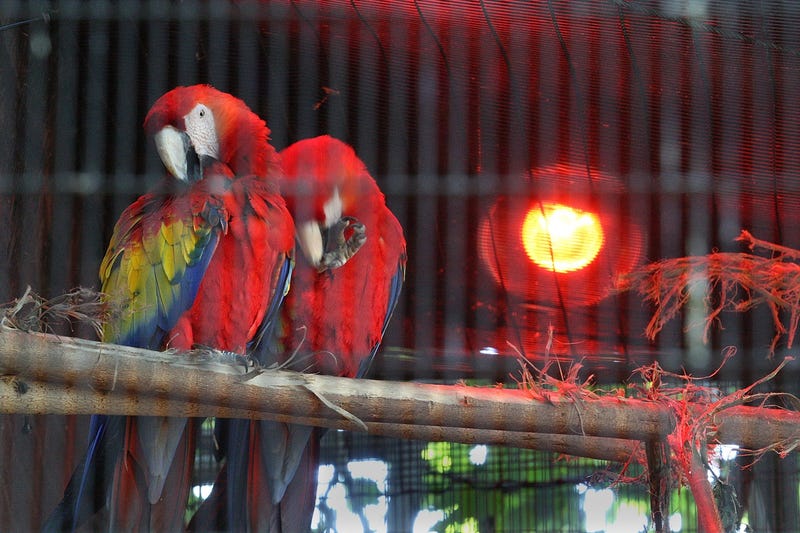
If you visit a zoo anytime soon, you may notice that some feathered friends are nowhere to be seen.
Many zoos across North America are moving their birds indoors, away from the general public and other wildlife, in an attempt to protect them from the highly contagious and deadly avian flu.
At the Philadelphia Zoo, hundreds of birds have been moved off-exhibit.
"When I say all of our birds, I mean all of the birds," Rachel Metz, vice president of animal well-being, told KYW Newsradio. "Everything from our chickens to our bald eagles to our emus, they are all being housed indoors at this time and for their own protection so they don’t come in any contact with wild birds."
The Detroit Zoo also moved all of its birds indoors until further notice after the virus was detected in a backyard flock of poultry in western Michigan.
"By bringing these animals indoors, we can more closely monitor them and prevent contact with wild birds who may be carriers," Dr. Ann Duncan, director of animal health, told WWJ Newsradio.
Officials at the Dallas Zoo are also not taking any chances. All birds, including the penguins and flamingos, will remain behind the scenes until the threat has passed.
Similar precautions are being taken at the Sedgwick County Zoo in Wichita, Kansas. Many birds have been moved to indoor habitats, while others have received habitat modifications to prevent contact with wild birds. The zoo has also halted the sale of fish food available to guests in an effort to encourage wild waterfowl to forage elsewhere.
Avian influenza is caused by an influenza type A and can infect poultry. It is carried by free flying waterfowl such as ducks, geese and shorebirds.
Birds shed the virus through their droppings and nasal discharge. Experts say it can be spread through contaminated equipment, clothing and boots. Research has shown that small birds that squeeze into zoo exhibits or buildings can also spread the flu. So can mice.
Nearly 23 million chickens and turkeys have already been killed in the U.S. to limit the spread of the virus, the Associated Press reported.
Although it is possible for humans to become infected with avian influenza, the CDC states that the virus does not spread easily from animals to humans.
LISTEN on the Audacy App
Sign Up and Follow Audacy
Facebook | Twitter | Instagram

